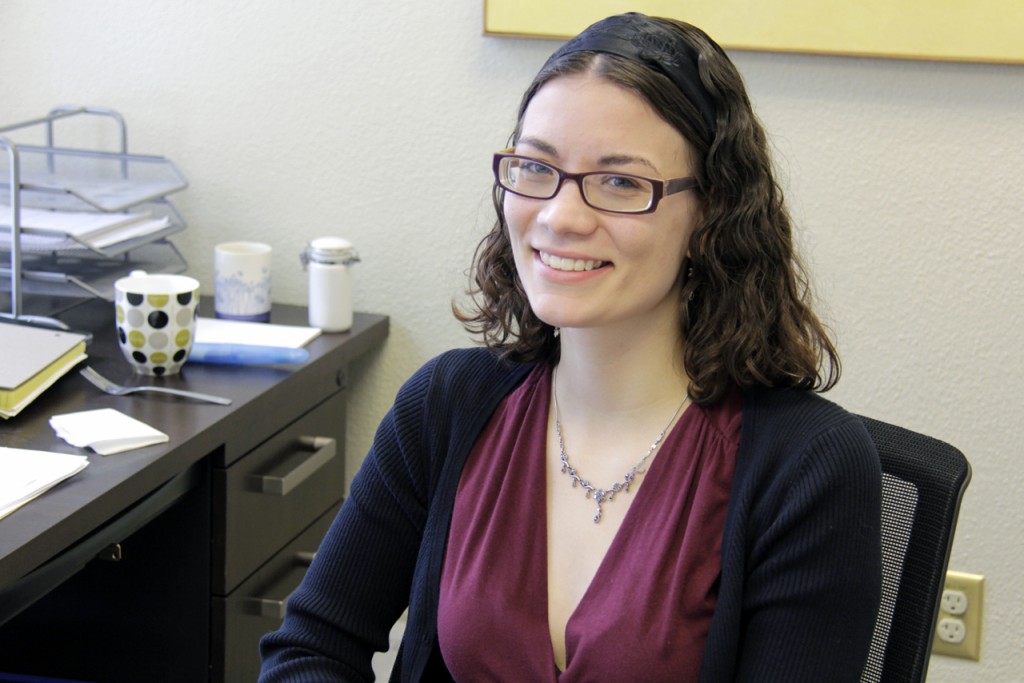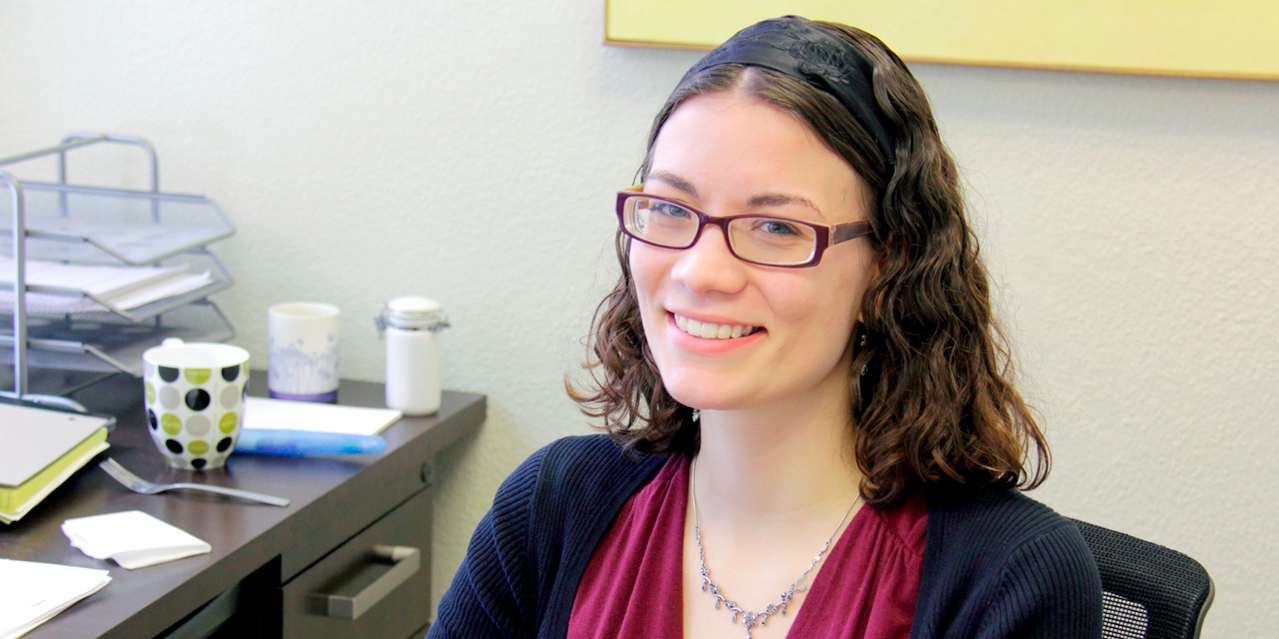
It was back in elementary school that Kristin Brethova, Concordia College’s new sustainability coordinator, became concerned about the environment. Her class watched a video about electricity and where it comes from.
What she remembers is an image of a little kid who turns on a light switch. Then, a new shot takes over the screen: power plants turning out disgusting filth into the air. She immediately understood the relationship.
“Connecting those things and realizing that what I do here, today, has effects somewhere else today,” Brethova said. “I think it’s important to help make that connection for people.”
That is what she gets to do in her role as Concordia’s first sustainability coordinator. Brethova began her work on Jan. 23 after being chosen by a search committee, which included a diverse group of faculty, staff and students.
“We were very fortunate to get Kristin,” said Ken Foster, chair of the President’s Sustainability Council. “In a way that no one else did, she brings together the policy and social science angle with the physical science angle. It was a good fit. She wanted to be in a place like this.”
Brethova, who grew up on the south shore of Lake Michigan, received her Master’s degree in environmental science and public policy from the University of Chicago. She applied for the position excited about the idea that it was new for the college.
“The role of the sustainability coordinator is so broad in a good way,” she said. “You’re not spending your whole day on electric utilities, or recycling or waste. You’re thinking about all those things from an ecological perspective and how they work together.”
Since arriving on campus, Brethova has plunged into sustainability projects on campus, with the eco-house and campus garden at the helm of the to-do list. Concordia will hire two summer interns to work in the garden, and Brethova will tend closely to their work. She will also help the four students living in the eco-house next year make choices about materials to use in the home renovation.
One main responsibility for her is to act as a point-person for all sustainability efforts on campus. Kristina Kaupa and Lyndi Reirsgaard, co-presidents of the Student Environmental Alliance, are especially happy about this because they no longer have to ask multiple faculty members to supervise their projects. Though her job is not an official advising role, Brethova will act as a resource to SEA and other groups with sustainability-focused projects.
“She was so professional, and you could tell she had direction,” said Kaupa of her first impression of Brethova during the search. “Having her changes the feasibility of what’s possible [for SEA] and what’s not.”
Foster, too, was impressed during her interviews with her versatility as a communicator.
“She can connect with students well,” he said, “but she’s also someone who you could send tomorrow in front of the board of regents and feel confident she will do a good job.”
Her desire to explain things to people is what drew her out of a more research-focused path and into grad school to study policy.
“I love research,” she said. “You feel like you’re in on some secret of the world that other people don’t understand. But I thought it would be more satisfying to be involved in the communication and application of those things.”
Reirsgard likes the idea of having a staff member who will help inform the greater campus community about the projects SEA and other groups are working on.
“One thing we agree on is that we want the campus to be really fired up about sustainability,” Reirsgard said, “and not see it as a chore.”
Since moving to Fargo, Brethova has noticed that the city is laid out differently; homes and businesses are farther apart than what she’s used to. The transition from being one of three million Chicago residents to living in Fargo–with 105,000 people–has caused Brethova to make some changes about how she runs errands.
“I can’t walk to a grocery store,” she said. “I could walk to the grocery store in Chicago.”
Brethova brings a big-city perspective to the space for vehicles on campus. She finds it funny, she said, that people talk about the parking “problem” at Concordia.
“I’m like, ‘Are you kidding me? It’s amazing,’” she said. “It’s all relative, I guess.”
Foster knows that some fiscally-minded people might wonder why the college hired another staff member. But evidence from other schools shows that sustainability coordinators tend to pay for themselves.
“In their work, they find ways colleges can reduce costs, become more efficient and use resources more wisely,” Foster said. “One way to make Concordia thrive in the future is to have a much stronger focus on sustainability.”
Brethova hopes students with a passion for environmental issues will join the sustainability council working groups, which include transportation, buildings, curriculum, food, water and waste. She encourages anyone to stop by her office in Lorentzsen Hall with sustainability ideas or send her an email at kbrethov@cord.edu.
“Ever since elementary school I’ve wanted to study science,” Brethova said as she sipped water from her reusable Camelback bottle. “I didn’t have this exact image. Sustainability coordinators didn’t exist. But it was a broad image of which this is a part.”

